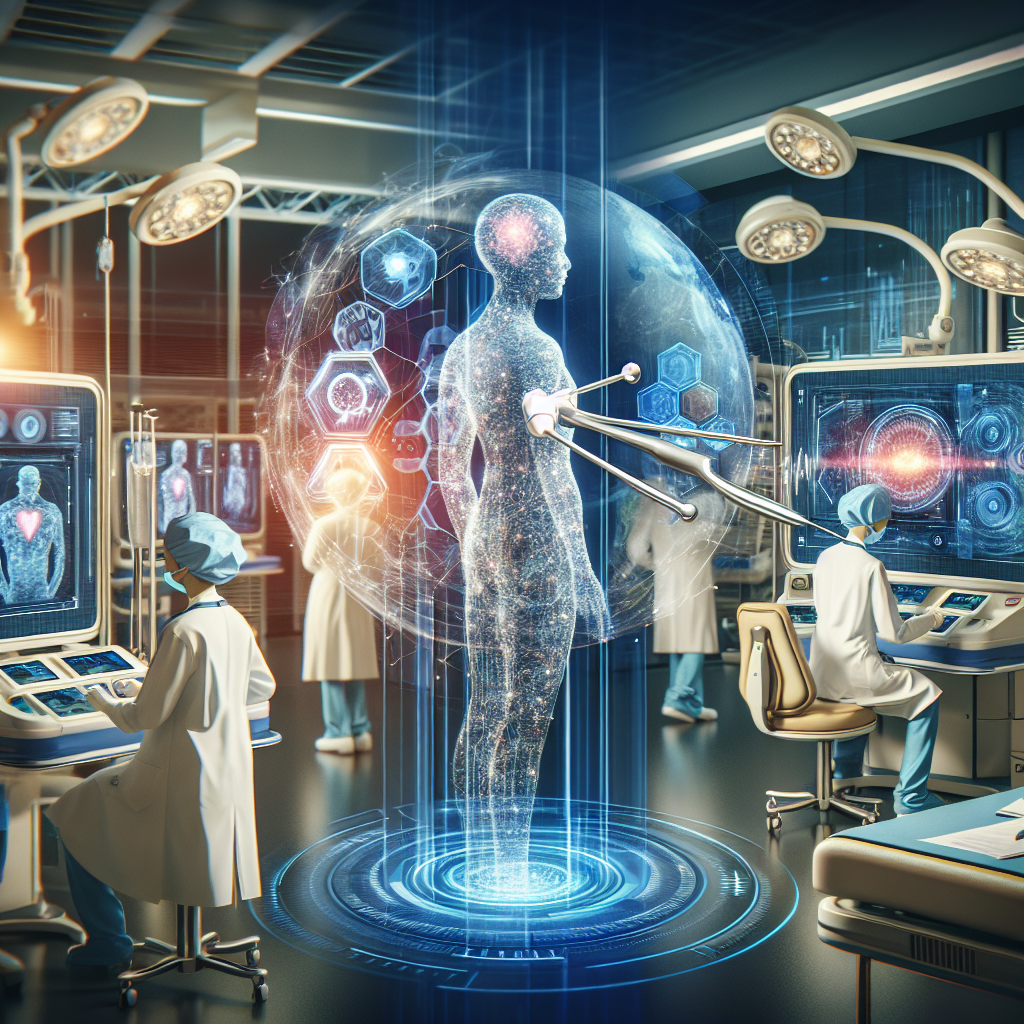Artificial General Intelligence (AGI) has the potential to revolutionize the healthcare industry in ways that were previously unimaginable. AGI refers to a type of artificial intelligence that can perform any intellectual task that a human can do. This includes reasoning, problem-solving, learning, and understanding natural language. In healthcare, AGI has the power to transform the medical field by improving diagnosis accuracy, treatment efficacy, and patient outcomes.
The use of AGI in healthcare is still in its early stages, but the possibilities are endless. From diagnosing diseases to personalized treatment plans, AGI has the potential to change the way healthcare is delivered. In this article, we will explore the impact of AGI on the medical field and discuss how it is revolutionizing healthcare.
AGI in Diagnosing Diseases
One of the most significant applications of AGI in healthcare is in diagnosing diseases. AGI can analyze vast amounts of medical data, including patient records, lab results, and imaging scans, to detect patterns and trends that human doctors may overlook. This can lead to earlier and more accurate diagnoses, which can improve patient outcomes and save lives.
For example, researchers at the University of California, San Francisco, used AGI to analyze chest X-rays and detect pneumonia with a higher accuracy rate than human radiologists. This demonstrates the potential of AGI to revolutionize the way diseases are diagnosed and treated.
AGI in Personalized Treatment Plans
Another area where AGI can revolutionize healthcare is in creating personalized treatment plans for patients. By analyzing a patient’s genetic information, medical history, and lifestyle factors, AGI can recommend the most effective treatments and medications for each individual. This can lead to better outcomes and reduced side effects for patients.
For example, researchers at the Mayo Clinic used AGI to analyze cancer patients’ genetic data and predict the most effective chemotherapy drugs for each patient. This personalized approach to treatment has the potential to revolutionize cancer care and improve survival rates.
AGI in Medical Research
AGI can also revolutionize medical research by analyzing vast amounts of data and identifying new patterns and trends that can lead to breakthroughs in treatment and prevention. By analyzing data from clinical trials, genetic studies, and patient records, AGI can accelerate the pace of medical research and bring new treatments to market faster.
For example, researchers at the Massachusetts Institute of Technology used AGI to identify a new antibiotic compound that has the potential to treat drug-resistant bacteria. This discovery would not have been possible without the power of AGI to analyze complex data and identify new patterns.
AGI in Telemedicine
AGI can also revolutionize telemedicine by providing virtual consultations and remote monitoring for patients. By using AGI-powered chatbots and virtual assistants, patients can receive personalized medical advice and support without leaving their homes. This can improve access to healthcare for patients in rural areas or those who are unable to travel to a doctor’s office.
For example, the company Babylon Health offers a virtual healthcare service powered by AGI that allows patients to consult with a virtual doctor via a smartphone app. This service has the potential to revolutionize the way healthcare is delivered and improve access to medical care for patients around the world.
AGI in Healthcare Administration
AGI can also revolutionize healthcare administration by streamlining processes and reducing costs. By analyzing vast amounts of data, AGI can identify inefficiencies in healthcare systems and recommend solutions to improve efficiency and reduce waste. This can lead to cost savings for healthcare providers and better outcomes for patients.
For example, researchers at the University of Pennsylvania used AGI to analyze hospital data and identify patterns that were leading to a high rate of hospital readmissions. By implementing new protocols based on the recommendations of the AGI system, the hospital was able to reduce readmission rates and improve patient outcomes.
FAQs
Q: What is the difference between AGI and narrow AI?
A: AGI refers to artificial intelligence that can perform any intellectual task that a human can do, while narrow AI is designed to perform specific tasks, such as playing chess or recognizing speech. AGI has the potential to learn and adapt to new tasks, while narrow AI is limited to the tasks it was designed for.
Q: How is AGI being used in healthcare today?
A: AGI is being used in healthcare to diagnose diseases, create personalized treatment plans, accelerate medical research, provide telemedicine services, and streamline healthcare administration. These applications have the potential to revolutionize the way healthcare is delivered and improve patient outcomes.
Q: What are the potential benefits of using AGI in healthcare?
A: The potential benefits of using AGI in healthcare include improved diagnosis accuracy, personalized treatment plans, faster medical research, increased access to healthcare through telemedicine, and reduced costs in healthcare administration. These benefits have the potential to revolutionize the medical field and improve patient outcomes.
Q: What are the ethical considerations of using AGI in healthcare?
A: Ethical considerations of using AGI in healthcare include issues of patient privacy, data security, bias in algorithms, and the impact on healthcare professionals. It is important to consider these ethical concerns and ensure that AGI is used in a responsible and transparent manner to protect patient rights and safety.
In conclusion, AGI has the potential to revolutionize the healthcare industry by improving diagnosis accuracy, treatment efficacy, and patient outcomes. By analyzing vast amounts of data and identifying patterns and trends, AGI can transform the way healthcare is delivered and bring new possibilities for personalized medicine and remote care. As AGI continues to advance, we can expect to see even more groundbreaking innovations in healthcare that will improve the lives of patients around the world.

